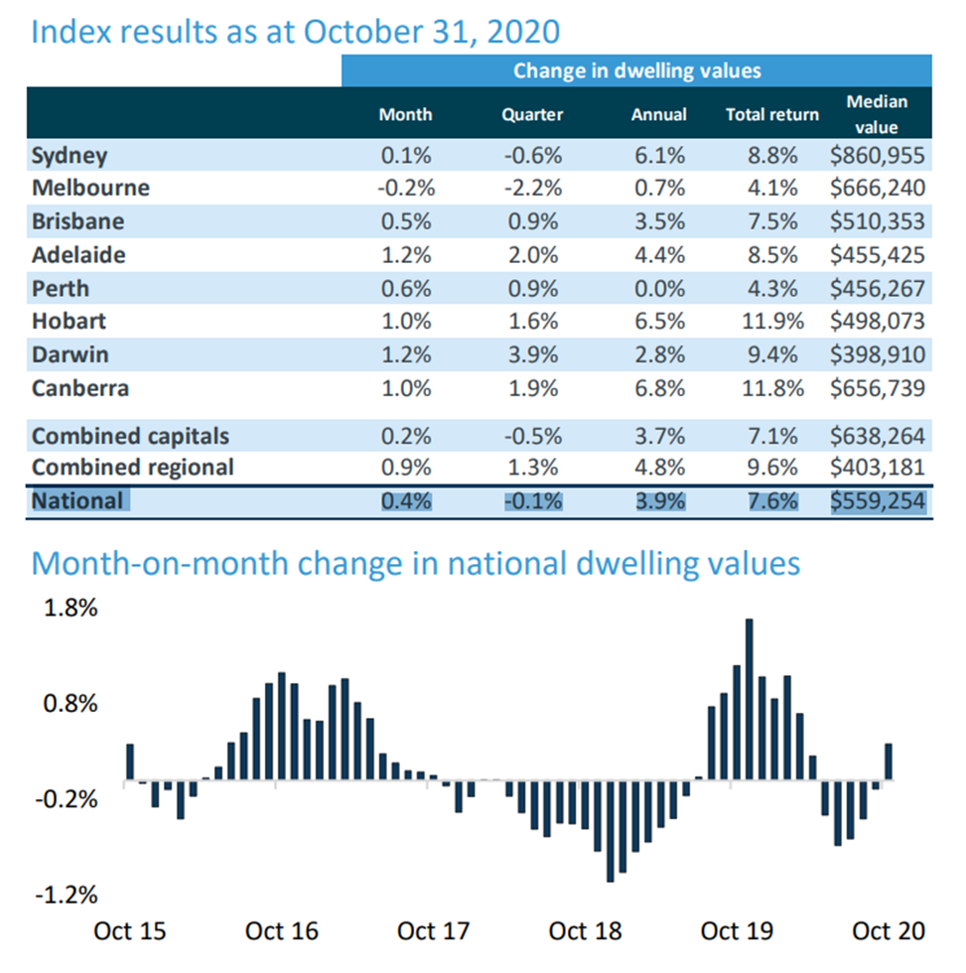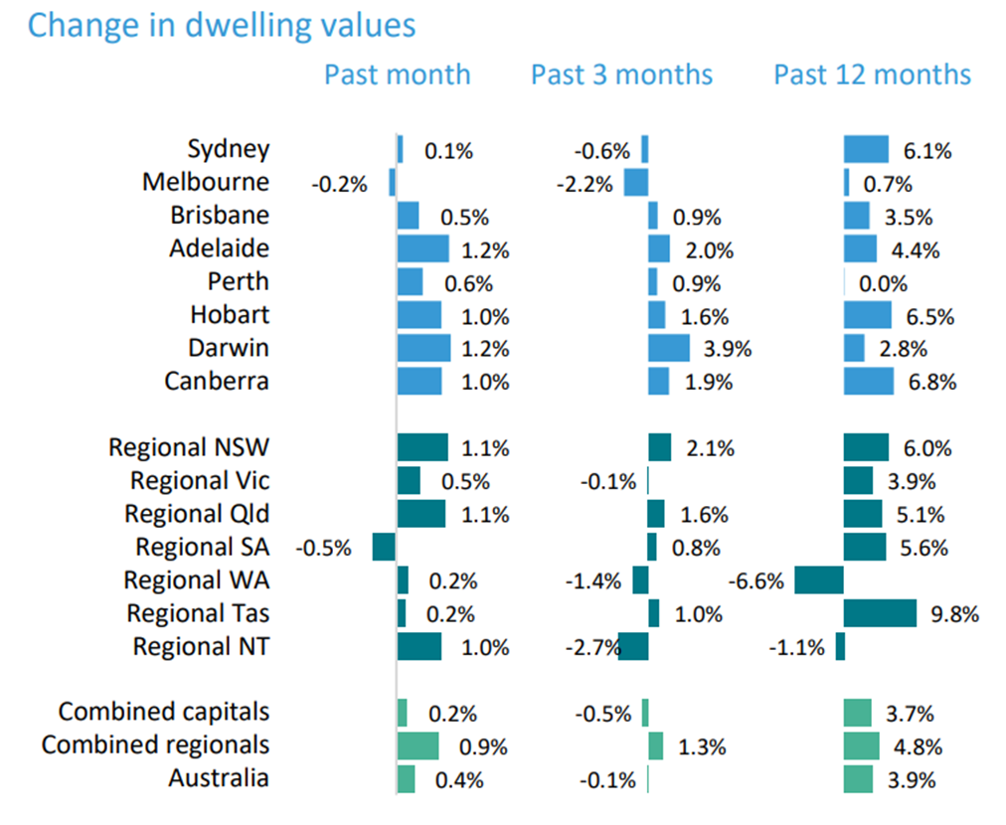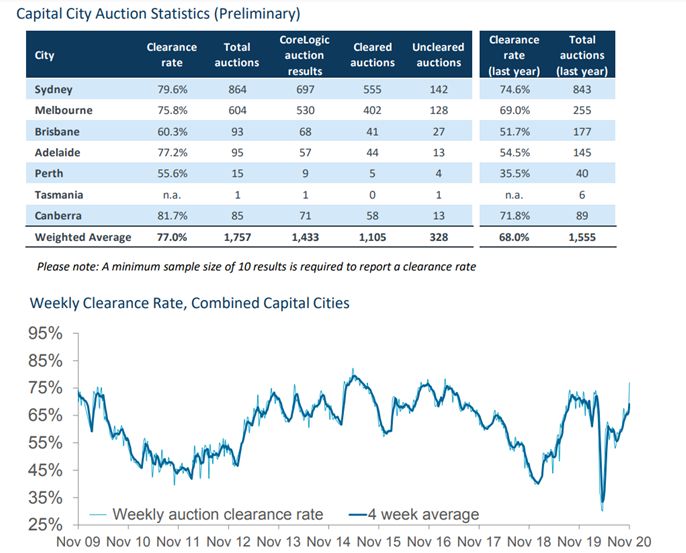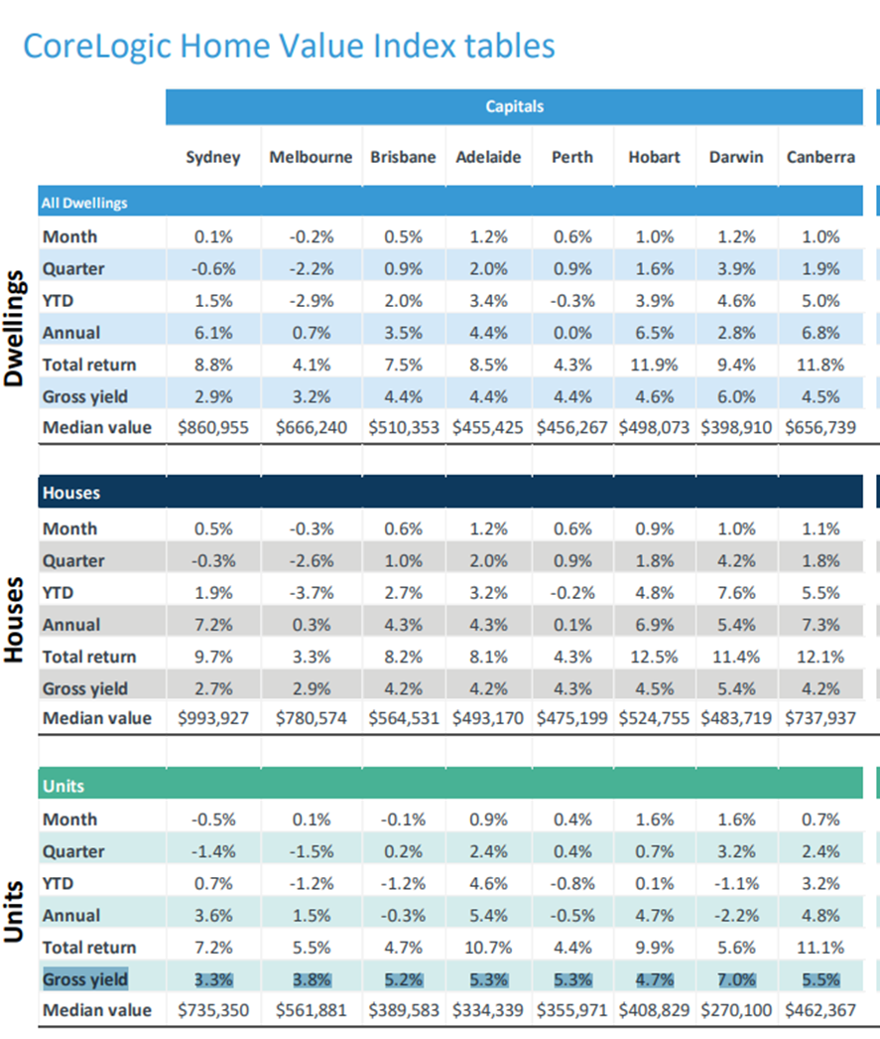Aussie house prices increase in October (in line with our March 2020 forecast)
Consistent with our March 2020 forecast for a very mild 0% to 5% correction in national house prices followed by a recovery around six months later, CoreLogic has reported today that national dwelling values increased by 0.4% in October for the first time since April 2020. (We anticipated CoreLogic would reveal this in an AFR column published on October 23.)
The peak-to-trough loss due to COVID-19 can now be officially recorded as just 1.7% for the national housing market (including both metro and non-metro areas) and only 2.8% for the 8 capital city index. Again, this is smack-bang in the middle of our 0% to 5% correction forecast, which was conspicuously contrarian compared to almost all other analyst estimates, which predicted house price declines of 10% (CBA, ANZ, NAB, WBC), 15% (UBS, Morgan Stanley), 20% (AMP) or 30% (various doomsayers).

In October, seven of the eight capital cities, including Sydney, reported capital gains across dwellings (houses and units combined) with the only laggard being Melbourne, which notably recorded its smallest loss (just -0.2%) since the modest correction began. This continued the trend set in September in which six of the eight capitals experienced house price appreciation in the month.
Last weekend saw another encouraging batch of auction clearance results, with the preliminary national number a healthy 77% across 1,433 auctions collected by CoreLogic. The most interesting result was Melbourne, which reported an impressive 76% preliminary clearance rate on a surprisingly large 530 auctions collated by CoreLogic (there were 604 auctions in total). It would appear that the Melbourne residential property market is recovering quickly notwithstanding its protracted lock-down.


It is important to remember that dwelling values across Australia's 8 capital cities are still below their level in February 2017: that is, house prices have not risen on a net basis over the last four years. Nonetheless the next phase of this Aussie housing recovery should see demand for investment properties climb as deposit rates fall below 0.5%. With gross rental yields on apartments at or above 5% in many cities, we are projecting a big lift in investor interest to exploit so-called "positive gearing" (ie, where rental yields of 5% or more are much higher than circa 2.5% mortgage rates). See the highlighted row below for the gross yields.

The upside surprise in the Aussie housing market's performance begs the awkward question why every other analyst in the market got their forecasts so badly wrong. These analysts also failed to predict the 10% decline in Aussie house prices between September 2017 and May 2019 and the 10% rebound between June 2019 and April 2020.
I think the essential error they make is to massively underestimate just how interest-rate-elastic Aussie housing demand is given the dominance of variable rate mortgages (and short-term fixed-rate loans), which has certainly been one insight we have harnessed to anticipate these turning points and the magnitude of the ensuing price increases/falls.
As the biggest source of household wealth, the performance of residential real estate is an essential building block supporting consumer sentiment, spending, construction and jobs.
While there is much misguided talk about zero population growth, this does not account for the fact that 480,000 Aussies have returned home in the last year, mostly as a consequence of COVID-19. And there are many more waiting in the wings hoping to restart their lives in one of the safest, most prosperous and stable, AAA-rated countries in the world.
Add to these expatriates the literally millions of talented and/or financially successful individuals seeking to flee escalating health or political risks in the US, UK, Europe, Taiwan, Hong Kong and China. It has the makings of an eventual net overseas migration tsunami, which will provide a powerful tailwind for aggregate demand, contrary to what everyone else is telling you about weak population growth.
Another profoundly important difference in this cycle is that APRA has been relentlessly bashing the banks on the quality of their lending standards for the last five to 10 years.
Aussie banks are more conservative in their credit assessment approaches than at any time in our modern financial history. While there is definitely a big latent risk in the relatively unregulated non-bank lending market, one would hope that APRA will impose its exceedingly tough, 34-page residential mortgage prudential practice guide on all non-banks as well.
APRA has the legislative ability to do so, and could simply require all non-banks to have their lending audited each year against these standards at the non-bank’s cost. This would create a level playing field between banks and non-banks in loan quality terms and ameliorate the otherwise non-trivial financial stability risks of non-banks running amok.
Not already a Livewire member?
Sign up today to get free access to investment ideas and strategies from Australia’s leading investors.
1 topic

